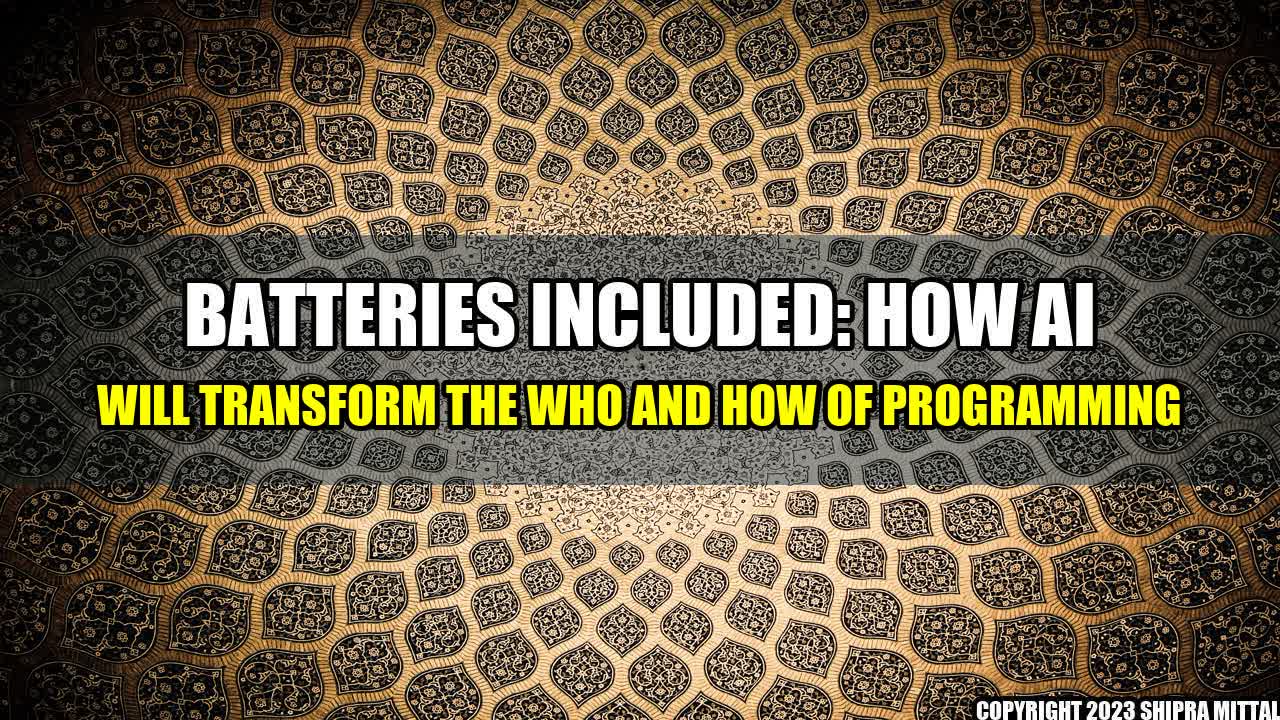It's 3 AM, and you're stuck on a coding problem that you just can't seem to solve. We've all been there. You're tired, frustrated, and wondering if there's an easier way to do this.
But what if, instead of giving up and going to bed, you could ask your computer to help you solve the problem? What if your computer could understand not just what you're trying to do, but also the best way to do it?
That's the promise of AI-powered programming, and it's closer than you might think.
The Rise of AI-Powered Programming
AI has already made significant strides in many areas of our lives, from self-driving cars to personalized recommendations on Netflix. But its impact on programming may be even more profound.
Today's programming languages are powerful and flexible, but they can also be difficult to learn and use. This can create a barrier for entry, particularly for those without a technical background.
AI could change all that by making programming more accessible and intuitive. With the help of machine learning algorithms, developers can train their computers to understand code and even to write it themselves.
As AI becomes more capable, we may see a future where programming is no longer the exclusive domain of highly-trained professionals. Anyone with an idea and a computer could create their own software, with AI handling much of the heavy lifting.
Examples of AI-Powered Programming in Action
While this may sound like science fiction, AI-powered programming is already happening. Here are just a few examples of how AI is transforming the way we code:
Automated Code Analysis
Traditionally, manual code reviews have been the main way of catching errors and improving code quality. However, this process can be slow and error-prone, particularly for large codebases.
AI-powered tools can help automate this process, using machine learning algorithms to identify potential problems in code. This allows developers to focus on higher-level tasks, while the computer takes care of the details.
Code Completion
One of the biggest challenges in writing code is remembering all of the syntax and functions required. AI-powered code completion tools can help by suggesting code snippets based on what you've already typed.
For example, Microsoft's IntelliCode uses machine learning to analyze thousands of open-source projects and make smart suggestions for code completion. This can save developers time and reduce errors.
Automated Code Generation
As AI becomes more sophisticated, we may see a future where computers can generate entire chunks of code automatically. While this technology is still in its infancy, there are already examples of AI-generated code in action.
For example, the company OpenAI recently released a language model called GPT-3 that can write complete sentences and even paragraphs. While it's not yet capable of writing entire programs, it's not hard to imagine a future where computers can generate entire applications on their own.
Three Key Takeaways
So what does this all mean for the future of programming? Here are three important takeaways:
1. Programming will become more accessible
As AI takes on more of the burden of writing and debugging code, programming will become more accessible to a wider audience. This could lead to a new wave of innovation, as more people are able to bring their ideas to life.
2. The role of the programmer will change
The rise of AI-powered programming will also change the role of the programmer. While a deep understanding of programming languages will always be important, developers will need to focus more on higher-level tasks such as design and project management.
3. AI will not replace human programmers
While AI will continue to transform the way we code, it's important to remember that computers are not creative or intuitive in the same way that humans are. Human programmers will still be needed to provide the vision and creativity that AI cannot.
AI-powered programming is still in its early stages, but the potential for transformation is enormous. As we continue to develop these tools and technologies, we may see a future where programming is easier, more accessible, and more innovative than ever before.

Curated by Team Akash.Mittal.Blog
Share on Twitter Share on LinkedIn